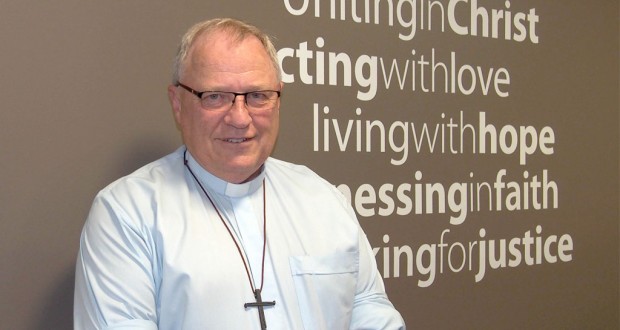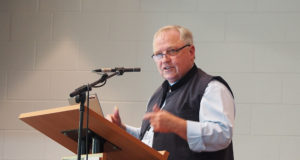“But in fact Christ has been raised from the dead, the first fruits of those who have died.”
1 Corinthians 15:20
If there’s one word that encapsulates the revelation of God in Jesus Christ, it is, for me, the word “solidarity”.
The seasons of this time in the Christian year emphasise solidarity: Christmas, the season of “Emmanuel”—God with us; Epiphany, where Jesus identifies with us in taking John’s baptism of repentance; and Lent, which starts with Jesus being tempted as we are, where he stands with the great prophets of the Old Testament and takes us on a journey of God’s deep compassion for us in the midst of our estrangement from God.
The story of Jesus so far all looks pretty good and encouraging, even if it was totally strange, at least to the pagan traditions in the Roman Empire.
Solidarity’s a dangerous thing, however. How far do we go in solidarity with others? In our solidarity could we not be in danger of getting lost in the needs of others, and losing ourselves?
Well, the journey of Easter answers that with a clear “Yes”, for then comes the scandalous, dangerous depths of God’s solidarity—the Son stands with us even in our death. He takes the journey of the rejected and despised of the earth.
This solidarity is vindicated by the Father, who raises Jesus from death, who becomes, as Paul puts it, “the first fruits of those who have died”.
Jesus’ resurrection speaks not only of life beyond death, it speaks also of how life is called to be lived here and now. Jesus’ resurrection changed the face of ancient society, and as the church delved its meaning, the whole understanding of what it is to be human underwent a radical transformation that still reverberates today.
“Whatever else Christianity brought into the late antique world, the principal gift it offered to pagan culture was a liberation from spiritual anxiety, from the desperation born of a hopeless longing to escape … from a morbid terror of the body, and from the fear that the cosmic powers might prevent the spirit from reaching its heavenly home” (David Bentley Hart, in Atheist Delusions: The Christian Revolution and its Fashionable Enemies).
To be human is not to be on an individual journey of self-fulfilment, to look after oneself and one’s tribe, to be anxious for oneself. To be human is to live in the confidence that nothing can separate us from the love of God, therefore we can follow Jesus in his solidarity with the despised and rejected, and in doing so, create something new on the earth.
Rev David Baker
Moderator, Queensland Synod
 JourneyOnline
JourneyOnline





